
For Almaz Nigusse, a grandmother in her 60s, the education of her grandchildren is her prime responsibility.
Recently, she found herself haggling for a price with Alemayehu Yeshiwond, a seller of whiteboards around Jacros Street near Salite Mehret Church in the capital.
Almaz has taken it upon herself to see to the schooling of her grandchildren and her teenage child. She buys all the school supplies that they need, and today she settled on 150 Br to buy a small white board from Alemayehu.
Almaz, who lives in Aqaqi Qality district close to Hana Mariam Church, has travelled to the CMC area to observe one of the religious festivals of the Ethiopian Orthodox Church, Tir Mariyam.
It is by chance that she found Alemayehu's shop and his whiteboards for she has been searching for the item for at least a month. The marker board is a glossy-surfaced writing implement that accepts nonpermanent markers and is easily erased for reuse.
Whiteboards, analogous to blackboards, gained popularity in the mid-1990s, and they have become a fixture of many offices, meeting rooms, classrooms and are even used in the restaurant business.
"I need it for my children so that they can practice and develop their writing skills,” she said.
Almaz's grandson is one of nearly 170,000 children aged four to six enrolled in kindergartens throughout Addis Abeba. There are 34,867 primary schools in Ethiopia.
Recently many street vendors have started to sell the product in the capital. Genanaw Arega, in his late 20s, is one of them.
Photograph of a whiteboard vendor exhibiting his ware along a sidewalk. The marker boards have recently gained popularity and are showing up at major market centers around the capital.
He hawks his wares all over the city for about six hours a day, but when Fortunetalked to him, he was in Gerji in front of Anbessa Bus Garage. Genanaw travels to Megenagna, Mexico, Sarbet, Arat Kilo and Bole covering all the important market centres of the city.
Hailing from Addis Qidame in Gojjam, Genanaw has been in the capital for the last five years working as a street vendor.
At first, he sold toys, film and music CD but claims the CD business truncated following the opening of entertainment television channels that reduced the sale of locally-produced films.
Once, working in Bole district, code enforcement officers confiscated CDs that cost him 5,000 Br, which he never recovered. These enforcement officers make random raids against street vendors, often striking with clubs and seizing merchandise with impunity and without any accounting.
Now, Genanaw has found a new opportunity, selling whiteboards, and he devotes his business hours to this single product. He claims that business has improved in the two months that he has been working.
In the beginning, he bought about 20 finished whiteboards at a time from a manufacturer around Gurd Shola, who supplied him with different size boards.
The sizes range between 80cm by 80cm to 40cm by 60cm, having a wholesale price that ranges from 300 Br to 70 Br. He retails them for 350 Br to 150 Br.
Recently, Genanaw started manufacturing the whiteboards himself, assembling at least 10 pieces each day from where he lives in Goro, Agow Sefer. He purchases the material he needs, including nails, laminated chip boards, polyester coverings, moldings and other items locally.
Genanaw is an entrepreneur ready to tackle any business idea and determined to survive in the competitive atmosphere of the city. He is motivated to help his family in Gojam where he sends money regularly.
Genanaw sells more of the smaller sized boards since they take up less space and are preferred by most customers.
Mohamed Seid, a manufacturer and wholesaler of whiteboards around Gurd Shola, is another beneficiary of the new popularity of whiteboards in the city.
Mohamed is in the furniture manufacturing business, producing sofa seat, chair, and beds, but added the boards to his line up about a year ago.
He started by selling his product in the price range of 70 Br to 120 Br, supplying more than 20 retailers, with nearly 15 pieces each day.
"Sometimes we receive direct orders from customers who specify the sizes," Mohamed, whose customers come from Goro, Megenanga, CMC and Merkato, told Fortune.
Even though the new trend has opened a business opportunity to the street vendors like Alemayehu, it has created business challenges to store owners who stock the product in their shops.
Eyerusalem Zewdu, who has a retail outlet in the Bole area, near Medhanialem Church, is one of those whose business was affected by the mushrooming whiteboard business on the streets
She opened the store about a year ago and carried the medium-sized boards that she retails for 650 Br.
With the advent of street vendors and small market makers offering the product everywhere, no one is buying it from her, except some churches, governmental and non-governmental institutions, according to Eyerusalem.
"I used to sell at least one or two a day previously. Now I am lucky to sell two boards in a week," Eyerusalem told Fortune.
To balance the difference between formal and the informal traders, street vendors should get proper workplaces, according to Jemal Abagissa (PhD), a lecturer at Addis Abeba University for the past two decades and with an expertise in small and medium businesses.
This is a good business idea that benefits the family from unnecessary paper costs and has to be introduced to other cities in the country, according to Jemal.
The material is more popular in Addis Abeba, where 73pc of primary schools are private.
"The city, federal and regional small and medium enterprise agencies should create market linkages to other cites," said Jemal.
In the capital, it is estimated that a total of 40,000 people are operating in the parallel market, trading various consumable products including the whiteboards.
Since last year, the city administration has launched a new scheme to formalize these businesses by registering and granting them a working space.
So far, Addis Abeba Trade Bureau has designated 129 marketplaces and provided vendors stalls via a raffle system.
PUBLISHED ON
Feb 23,2019 [ VOL
19 , NO
982]

Radar | Apr 08,2023
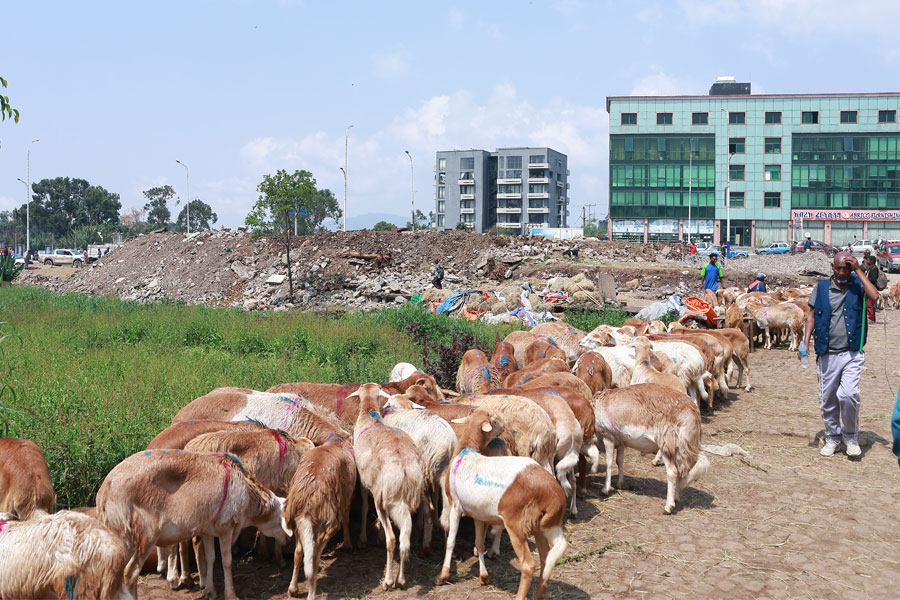
Agenda | May 04,2024
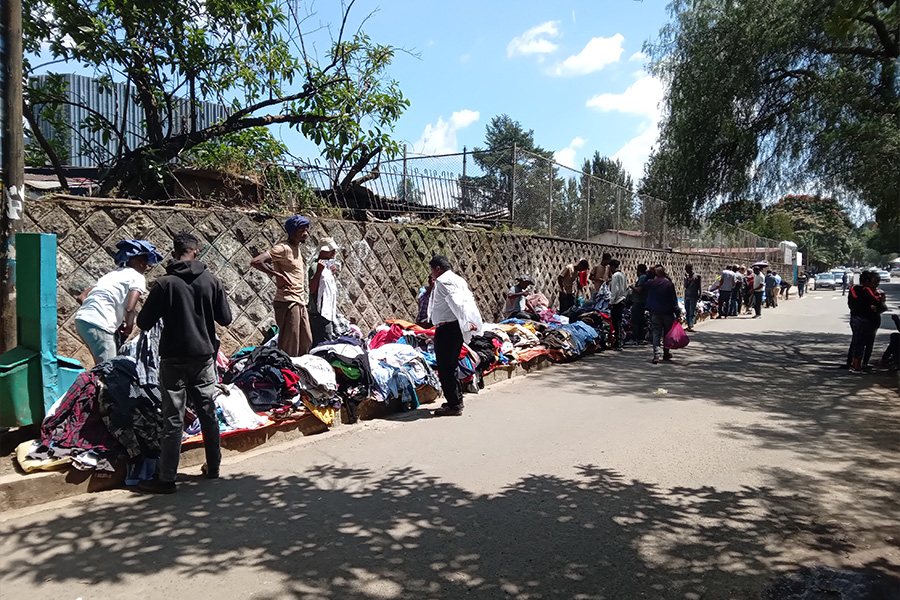
In-Picture | Oct 13,2024
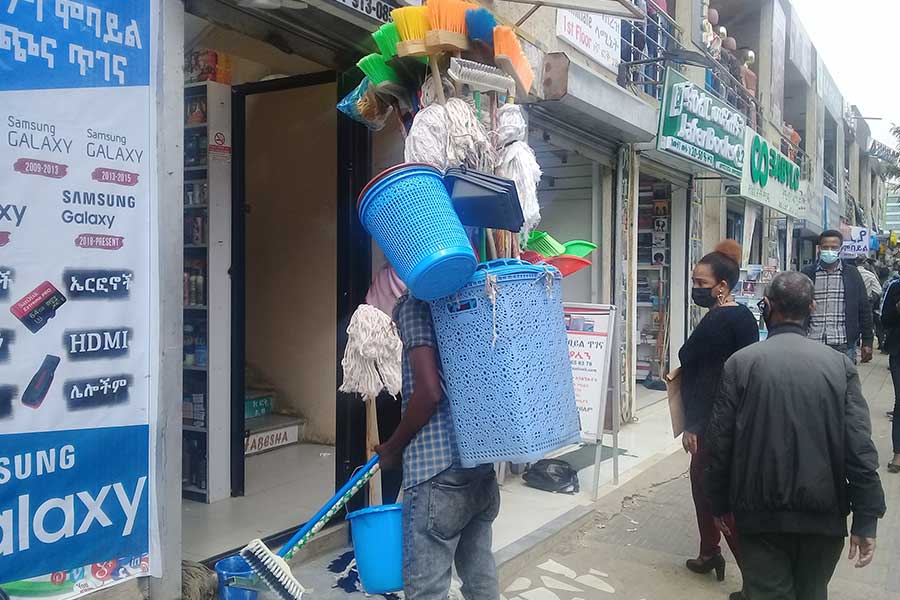
Radar | Jun 26,2021
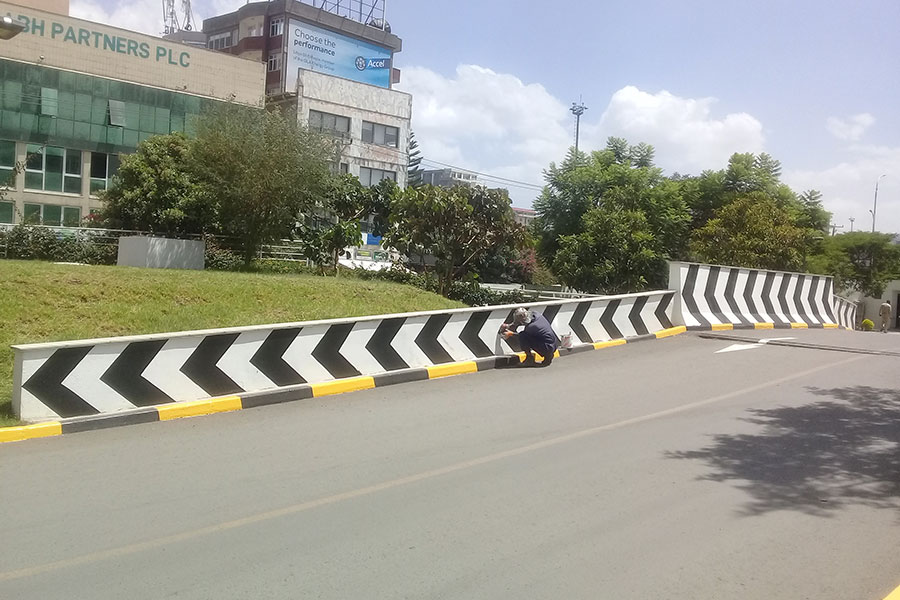
Radar | May 14,2022

Commentaries | Nov 18,2023
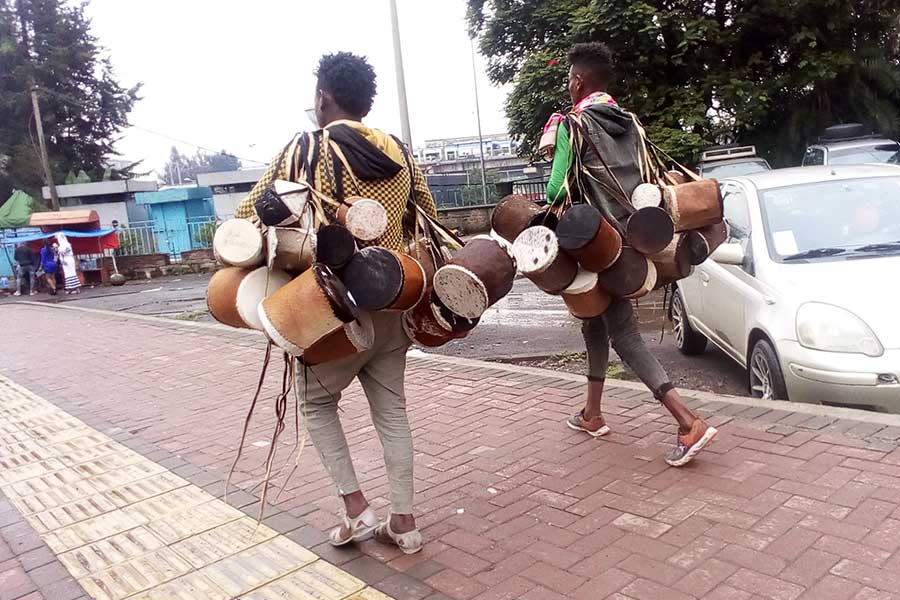
Radar | Aug 17,2019
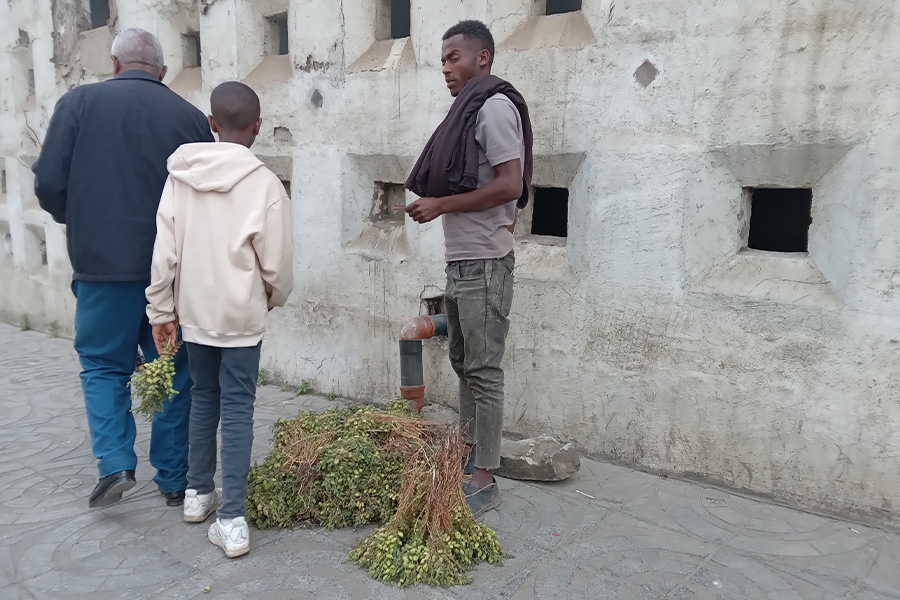
In-Picture | Jan 12,2025

Radar | Oct 31,2022
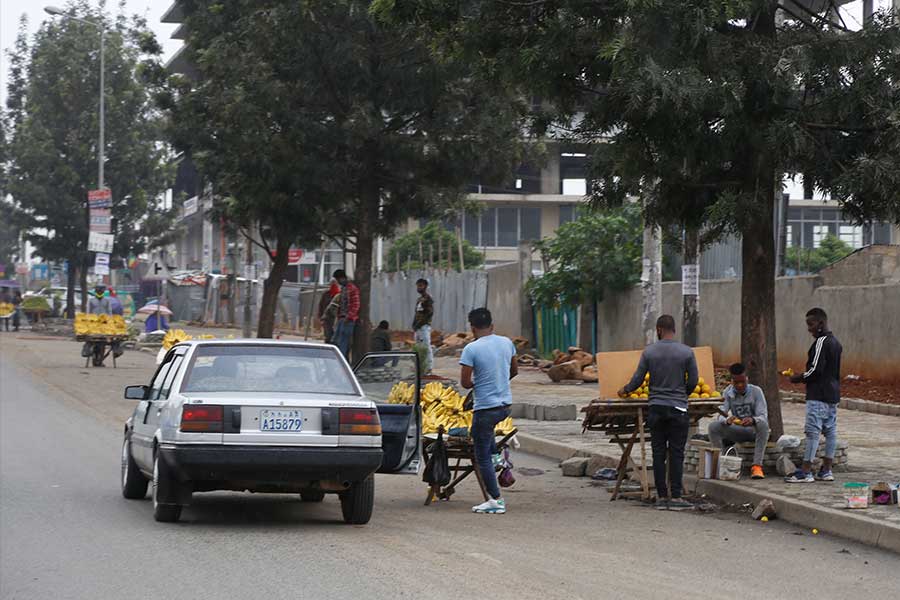
Radar | Jun 14,2020

Dec 22 , 2024 . By TIZITA SHEWAFERAW
Charged with transforming colossal state-owned enterprises into modern and competitiv...

Aug 18 , 2024 . By AKSAH ITALO
Although predictable Yonas Zerihun's job in the ride-hailing service is not immune to...

Jul 28 , 2024 . By TIZITA SHEWAFERAW
Unhabitual, perhaps too many, Samuel Gebreyohannes, 38, used to occasionally enjoy a couple of beers at breakfast. However, he recently swit...

Jul 13 , 2024 . By AKSAH ITALO
Investors who rely on tractors, trucks, and field vehicles for commuting, transporting commodities, and f...

Jun 28 , 2025
Meseret Damtie, the assertive auditor general, has never been shy about naming names...

Jun 21 , 2025
A well-worn adage says, “Budget is not destiny, but it is direction.” Examining t...

Jun 14 , 2025
Yet again, the Horn of Africa is bracing for trouble. A region already frayed by wars...

Jun 7 , 2025
Few promises shine brighter in Addis Abeba than the pledge of a roof for every family...